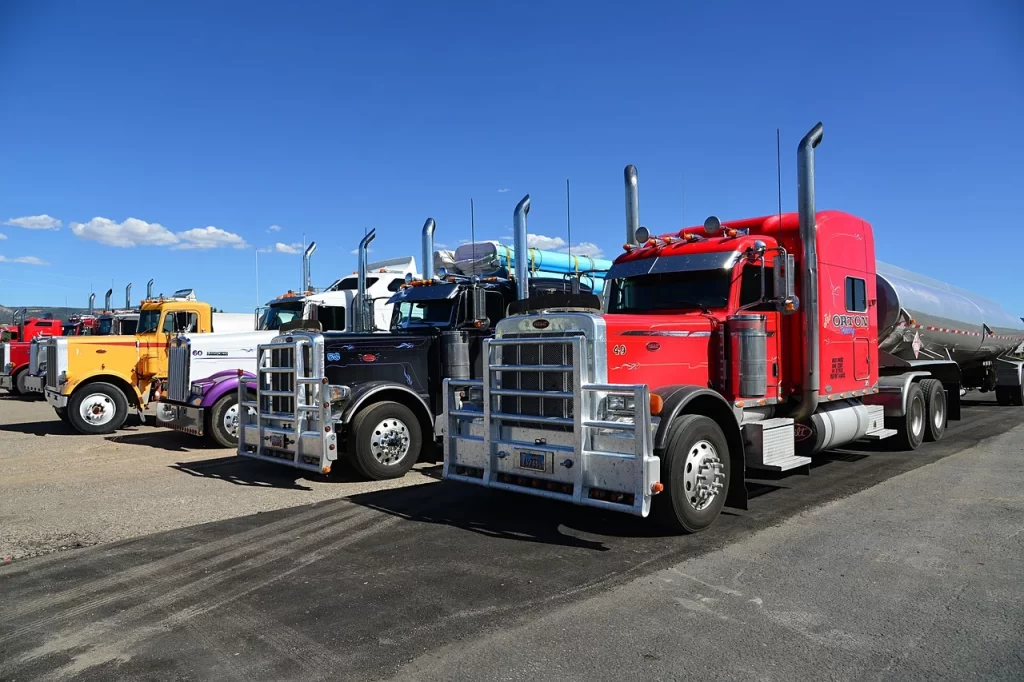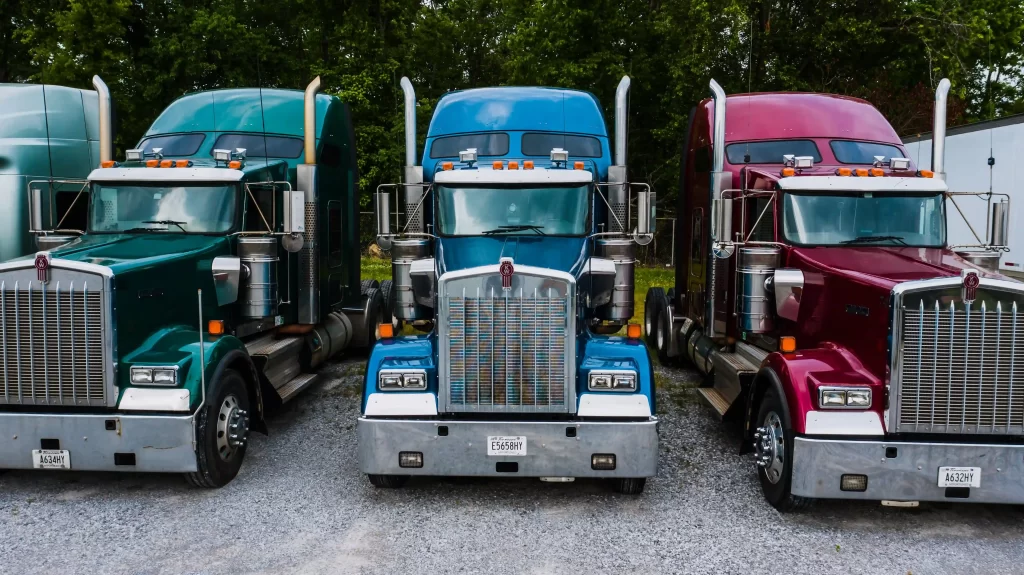
Launching a truck parking business is by no means a complicated endeavor. The main elements are fairly straightforward, mostly pertaining to the simple notion of buying and maintaining a plot of private land – and then charging truckers to park on it.
While there are other factors and subtle nuances to take into account, setting up a truck parking lot is not only an increasingly viable business but an extremely straightforward one. With the help of Truck Parking Club pointing weary truckers to your lot, the premise is also relatively free of stress.
Growing Demand
With increasing demand for more facilities due to a nationwide shortage of truck parking spaces, venturing into the parking space can be highly lucrative and provide a healthy revenue stream.
However, with commercial land at such a premium currently, the financing side of things can be a little anxiety-inducing unless you already have an existing property available to transform into a truck parking business.
But financing doesn’t need to be implicitly stressful. Through this article, we are going to look at the various financing options available to entrepreneurs in this rapidly growing sector, such as grants, loans, and innovative financial mechanisms aiming to guide your truck parking venture toward success.
But first, why should you even launch a truck parking business in the first place? Let’s take a look.
An Increasingly Lucrative Sector
There was a time when truckers had no issues with parking. Adequate numbers of rest stops and truck stops ensured that truckers had plenty of spaces to park and rest while working our nation’s highways for days or weeks at a time.
However, over the last decade or two, with a rise in e-commerce sales and the subsequent supporting transportation increase fueled by it, there are far more trucks on our roads. Coupled with that is an issue relating to truck drivers ‘Hours of Service regulations,’ in which drivers must now park and rest for a fixed time at certain periods.
The ‘One in Ten’ Statistic
These two developments – the rise of e-commerce and HOS regulations – have caused an increase in trucks and a decrease in the time truckers can spend driving. The problem is that very few additional rest areas have been created, leading to a desperate parking shortage.
Current estimates and studies suggest that only one parking space exists for every ten trucks on our roads. Faced with such an overwhelming shortage of truck parking, drivers are resorting to exit ramps, abandoned gas stations, and unwelcoming supermarket lots for their parking.
The situation is less than ideal for truckers but a perfect opportunity for entrepreneurs who are moving into this neglected space by launching truck parking lot businesses.
In a market brimming with potential, the only caveat that exists for many entrepreneurs is financing. Let’s look at your options.
Truck Parking Business Financing
Entering or expanding within the truck parking industry requires substantial capital. The infrastructure needs, such as land acquisition, construction, and compliance with truck parking zoning laws, make it essential to secure adequate funding.
Understanding the different financing options available can provide a reliable platform for managing your investment and ensuring a lucrative operation.
Interested in learning how to start a truck parking lot business? Let’s take a look at your main options for truck parking loans.
1) Traditional Bank Loans
One of the most straightforward paths to financing is through traditional bank loans. Banks offer various loan products that can be used for purchasing land, developing infrastructure, or expanding existing facilities. The benefits of bank loans include lower interest rates and longer repayment terms, which can be critical for new ventures needing time to grow their cash flows.
2) Small Business Administration (SBA) Loans
SBA loans are another viable option, particularly appealing due to their competitive terms and rates, partly guaranteed by the government. These loans can be used for nearly all business expenses, including the purchase of real estate and equipment. SBA loans are especially useful for those who may not qualify for traditional bank loans due to stringent lending standards.
3) Grants and Public Funding
Various federal and state grants are specifically aimed at improving transportation infrastructure, including truck parking facilities. These grants often cover a portion of the total project cost and do not require repayment, making them highly attractive. However, they are competitive and come with specific requirements tied to the grant’s objectives, such as improving safety or reducing traffic congestion.

4) Private Investors and Venture Capital
Seeking investment from private investors or venture capital firms is another way to support the cost of a truck parking lot business. These organizations look for high-growth opportunities and can provide significant capital in exchange for equity in the business. While this may mean relinquishing some control of the business, it also brings in funds without the burden of debt repayment.
5) Crowdfunding
In more recent years, crowdfunding has become a great way to raise funds, particularly for niche markets like truck parking. Platforms like GoFundMe, Kickstarter, or specialized real estate crowdfunding platforms allow entrepreneurs to raise funds directly from the public. This method can also serve as a marketing tool, increasing visibility and customer engagement from the outset.
6) Revenue-Based Financing
Revenue-based financing is suitable for businesses with existing revenue streams, where financing is repaid through a percentage of monthly revenues. This method provides flexibility for businesses, as repayment aligns with cash flow variations, which can be particularly advantageous during the initial stages of business expansion.
7) Truck Parking Business – Credit Lines
A business credit line offers amazing flexibility, allowing truck parking business owners to borrow only what they need and repay it as they can. The premise is similar to a credit card but typically with a higher credit limit and lower interest rates. This option is excellent for managing cash flow and unexpected expenses during the development and operational phases.
8) Equipment Financing
For truck parking businesses that require large investments in security systems, lighting, or other equipment, equipment financing offers a way to spread out the cost of these assets over their useful life. This financing type can be easier to qualify for than unsecured loans because the equipment serves as collateral.
Comparative Overview of Truck Stop Financing Options
Analyzing the financials will form a major part of your truck parking lot business plan, and we expect you will do so with extreme diligence. For the unfamiliar, we thought a basic ‘ballpark figure’ overview of the main financing options might help you to decide which financing source would best suit your needs based on interest rates and loan durations.
| Type of Financing | Rates | Terms |
| Bank | 5-10% | 3-8 years |
| SBA | 5-10% | 3-8 years |
| Credit Line | 5-20% | 1-4 years |
| Alternative | 6-25% | 1.4 years |
| Cash Advance | 1.1 – 1.5% | 3 to 20 years |
How Much Capital Is Required?
Forming a precise estimate of land costs for a truck parking lot in America is not possible for obvious reasons. There are simply too many variables to take into account. With that being said, approximate figures can be provided.
Most truck parking lot businesses are situated outside urban areas, which often makes them more affordable than alternatives closer to cities. Ideally, a lot should be within 15 minutes of a highway to ensure accessibility for truckers. Generally speaking, land for truck parking is reasonably priced if careful selection is exercised.
On average, a truck parking lot should encompass around five to ten acres to accommodate a healthy number of trucks and necessary amenities. The cost per acre for land suitable for truck parking varies, but you might expect to pay approximately $10,000 to $20,000 per acre in an average area of America.
In total, you could be looking at anywhere between $300,000 and $500,000 to launch a standard truck parking business of ten acres with basic facilities. Although your first step in learning how to start a truck parking lot business will be to obtain precise figures in the area of your choosing – these approximations should give you a general idea, however.

Bottom Line
Choosing the right financing strategy for a truck parking business involves assessing the amount of capital needed, the costs of different financing options, the business’s cash flow stability, and the entrepreneur’s willingness to share equity. In general, a combination of different funding sources may be the best approach to cover all financial needs without over-relying on one source.
Either way, securing financing is going to be your most important, decisive step in developing a successful truck parking business. Exploring a range of options—from traditional loans to more creative funding methods—can help build a solid financial foundation for your truck parking business.
Once you have funding in place, you should find the rest of the venture less challenging than you might imagine. With such a vast shortage of truck parking spaces and a huge number of truckers looking to fill new parking lots, your chances of making it work and becoming a Truck Parking Club Property Member are very high indeed.
The information published herein is for general informational purposes only. Truck Parking Club does not make any representations or warranties about the completeness, reliability, legality, and accuracy of this information. Any reliance placed on such material is strictly at the user’s own risk. Truck Parking Club shall not be responsible for any losses or damages incurred in connection with the information published herein.





